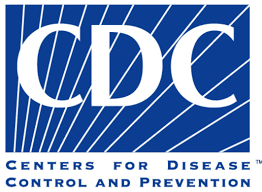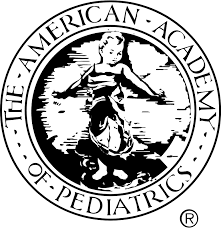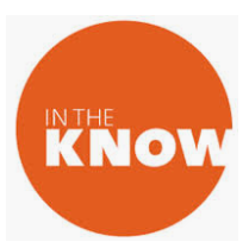A digest of EMSC Program News and Activities
Issue #51 | July 16, 2020
Top News
Featured Articles
Racial Inequalities and Healthcare Disparities
In light of the current social movement for racial justice across the United States, the U.S. Fire Administration (USFA) and the National Highway Transportation Safety Administration (NHTSA) Office of Emergency Medical Services (OEM) worked together to compile a series of best practices to prepare personnel, the station, apparatus and the community for emergency response in a challenging environment. The Informational Bulletin is available for download here.
The EMSC Innovation and Improvement Center as well as with our partners—American Academy of Pediatrics, American College of Emergency Physicians, Emergency Nurses Association and the American College of Surgery—have made statements on the subject. Look for our next issue, where we will explore the subject in more depth.
Illinois EMSC Launches Interactive Educational Module on Pediatric Disaster Triage

The Illinois EMSC has launched an online interactive module titled “Pediatric Disaster Triage: Utilizing the JumpSTART Method.” This educational tool discusses why children are at higher risk during a disaster and reviews Mass Casualty Incident (MCI) triage concepts utilizing tools such as Simple Triage and Rapid Treatment (START) for adults and JumpSTART for children. Interactive scenarios allow the participant to apply these concepts and tools in the field. The module can be accessed via the link below. The module is FREE. However, individuals need to log into the UIC Public Health Learning system. Click here to learn more.
AHRQ: Systemic Review of Substance Use Disorder (SUD) Interventions for Adolescents

The Agency for Healthcare Research and Quality (AHRQ) conducted a systemic review of the literature on behavioral, pharmacologic, and combined interventions for adolescents ages 12 to 20 years with problematic substance use or substance use disorder. A summary of the main findings along with the full report can be found here.
Janette Fennell, President, KidsAndCars.org, on the Passage of the Moving Forward Act (H.R. 2) by the U.S. House of Representatives

On July 1, the U.S. House of Representatives passed the Moving Forward Act (H.R. 2), advancing reasonable and cost-effective solutions to tackle the excessive number of motor vehicle fatalities and injuries that take place every day on our roads and highways. Click here to read the full statement.

Pediatricians Can Help Prevent Adverse Childhood Experiences

New Training from the CDC Helps Pediatric Medical Providers Recognize and Prevent ACEs
You’re invited to explore the new Preventing Adverse Childhood Experiences (ACEs) Training for Pediatric Medical Providers.
This training focuses on the central role that pediatric medical providers play in understanding, recognizing, preventing, and treating ACEs and their consequences.
Lesson topics include:
- The Biological Impact of ACEs
- The Role of Pediatric Medical Providers Across the Social Ecological Model
- The Role of Pediatric Medical Providers in Preventing ACEs
- The Role of Pediatric Medical Providers in Intervention
- Educating Others and Raising Awareness
Learn how pediatric medical care providers can uniquely help children, families, and communities heal from ACEs and prevent them from occurring altogether. Take the training today!
NEDARC: Remote Meeting User Guide

NEDARC has created a Remote Meeting User Guide. This user guide is intended to help EMSC Program Managers and others working remotely to plan and host high quality in-person and remote meetings. The guide can be used both internally and with external stakeholders and organizations. Please note, this guide is NOT an instruction manual of how to use remote meeting applications. You can download the guide from the NEDARC website by going to https://www.nedarc.org/performanceMeasures/pmHelpAndTools.html and scrolling to the bottom of the page.
New Webinar on QI Tableau Dashboards
NEDARC will host a webinar about QI Tableau Dashboards Stage 1 on July 30th from 12pm-1pm MST. This webinar is only for EMSC managers and will help them to understand more about QI data located in Tableau. Invitations have been sent via Outlook.
AAP Endorses Society of Critical Care Medicine's Initial Resuscitation Algorithm for Children

Earlier this year, the American Academy of Pediatric endorsed the following publication: The Society of Critical Care Medicine. Initial resuscitation algorithm for children. Check it out here!
AAP: Family Presence Policies for Pediatric Inpatient Settings During the COVID-19 Pandemic

The coronavirus disease 2019 (COVID-19) pandemic has impacted the United States health care system in unprecedented ways. The American Academy of Pediatrics (AAP) recognizes the importance of providing the best medical care as well as providing compassionate patient- and family- centered care for children who are in the hospital and their families/caregivers while reducing infection risk and keeping clinicians/staff safe. Family presence policies are critical components of family-centered care for all children and are particularly important for children with special health care needs, including those with disabilities, medical complexity, and serious illness. Family presence policies are also important for youth and young adults with disabilities over the age of 18 and require reasonable accommodations per the Americans with Disabilities Act. Read more about this critical component of family centered care for children by following this link.
ENA Acquires Emergency Severity Index (ESI) Triage and relaunches the ESI Pediatric Course

Did you know? ENA recently acquired Emergency Severity Index (ESI) Triage, and has relaunched the ESI Pediatric Course: https://www.ena.org/education/esi

Well-Child Wednesdays: HRSA Launched a New Social Media Campaign: #WellChildWednesday:
Each Wednesday, for the next four weeks, HRSA will post messages on our @HRSAGov Twitter and Facebook accounts addressing well-visits, immunizations, young adult care, nutrition and mental health. Share, retweet, and use the hashtag to amplify these important messages which are meant to encourage well-child visits and immunizations.
HRSA SPROC Grants: have extended their project periods. A webinar will be planned to share final results.
Download the newsletter as PDF
Subscribe to the EMSCPulse
Get the EMSCPulse Newsletter delivered to your inbox every month.